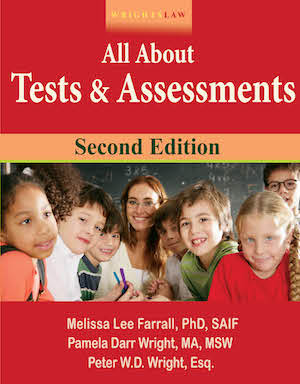“I want my son to be prepared to enter the workforce when he leaves school. How can I get the IEP team to develop vocational goals for him?”
Good question! Most parents and educators don’t know the legal requirements for transition plans and assessments. You want to be an exception to that rule.
 You are the expert on your child. You’ve observed him in different situations and environments, not just in school.
You are the expert on your child. You’ve observed him in different situations and environments, not just in school.
You have a deep understanding of his strengths, blind spots, and personality style. You know if he is realistic, artistic, investigative, social, enterprising, conventional. You know if he is realistic, artistic, investigative, social, enterprising, or conventional.
Before your child turns 16, the IEP team must include measurable transition goals in his IEP. Some states require transition assessments, goals, and services by age 14 or earlier.
Your child’s IEP team is required to use appropriate transition tests and assessments to identify his transition needs and provide transition services that are based on “the child’s unique needs, taking into account the child’s strengths, preferences, and interests.”
What is your parental role? You need to share your knowledge about your child’s strengths, preferences and interests. This information will help the team select the right tests for his transition assessment.
The right tests and assessments will provide the information that’s needed to create a good transition plan.
What tests should be included in your child’s transition assessment? Since each child is different, there are no required tests that must be included in a transition assessment.
Your child’s IEP team should select tests and assessments to clarify your child’s interests, strengths, preferences, priorities, and personality style.
You may want to assess your child’s knowledge and skills in areas like these:
- Career awareness
- Workplace readiness
- Job-seeking strategies
- College and vocational education
- House, food, clothing, health, physical care
The IEP team may need to assess your child’s adaptive behavior and self-determination skills, including skills in:
- Goal setting
- Problem-solving
- Self-advocacy
- Independence and daily living skills
- Communication and social skills
 For more ideas about transition tests and assessments, turn to Chapter 14, Transition Assessments, in Wrightslaw: All About Tests and Assessments, 2nd Edition.
For more ideas about transition tests and assessments, turn to Chapter 14, Transition Assessments, in Wrightslaw: All About Tests and Assessments, 2nd Edition.
Learn more about your parental role in transition assessment and how a good assessment is a big step to helping your child set goals for the future.





What kind of transition services are available when going into middle school? This is one of my sons behavioral triggers so I do think it is needed but how do I handle it other than asking for it in an IEP meeting? Should it be written on the current IEP?
My son is 14 years old and has just started high school in the fall. The School is pushing to do a transition meeting now. I feel he is too young to plan for transition. He would like to consider 4-year college but they keep pushing him to a vocational track saying that his track record doesn’t indicate he is fit for college. He does not feel comfortable being asked questions in the meeting, but the school insists that they will bring him in. Can I ask them to postpone the transition meeting till he’s 15? Can they force my son to attend?
how often are transition assessments applied in high school??
There is no federal rule, but there may be a rule in your state. Logically the first time should be as they are getting close to age 16 to help in developing their transition plan. After that the IEP should consider it if there appears to be a need, which is a subjective decision.